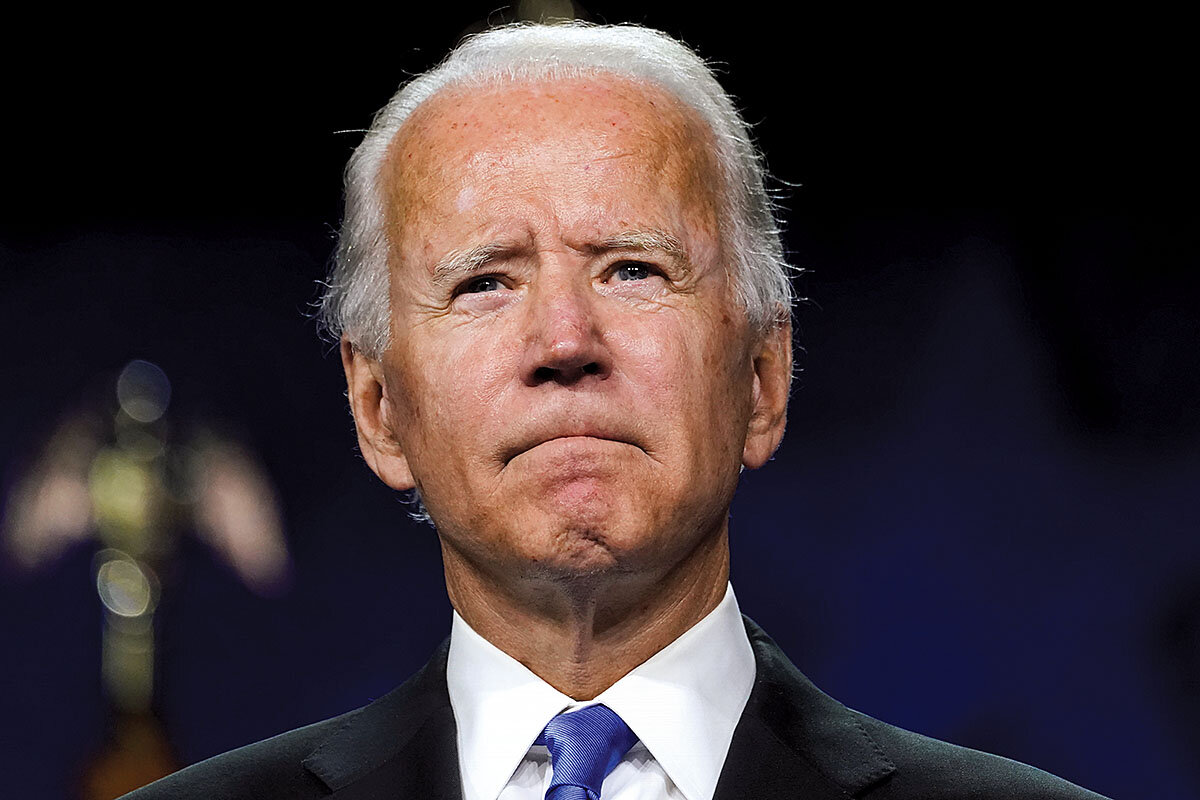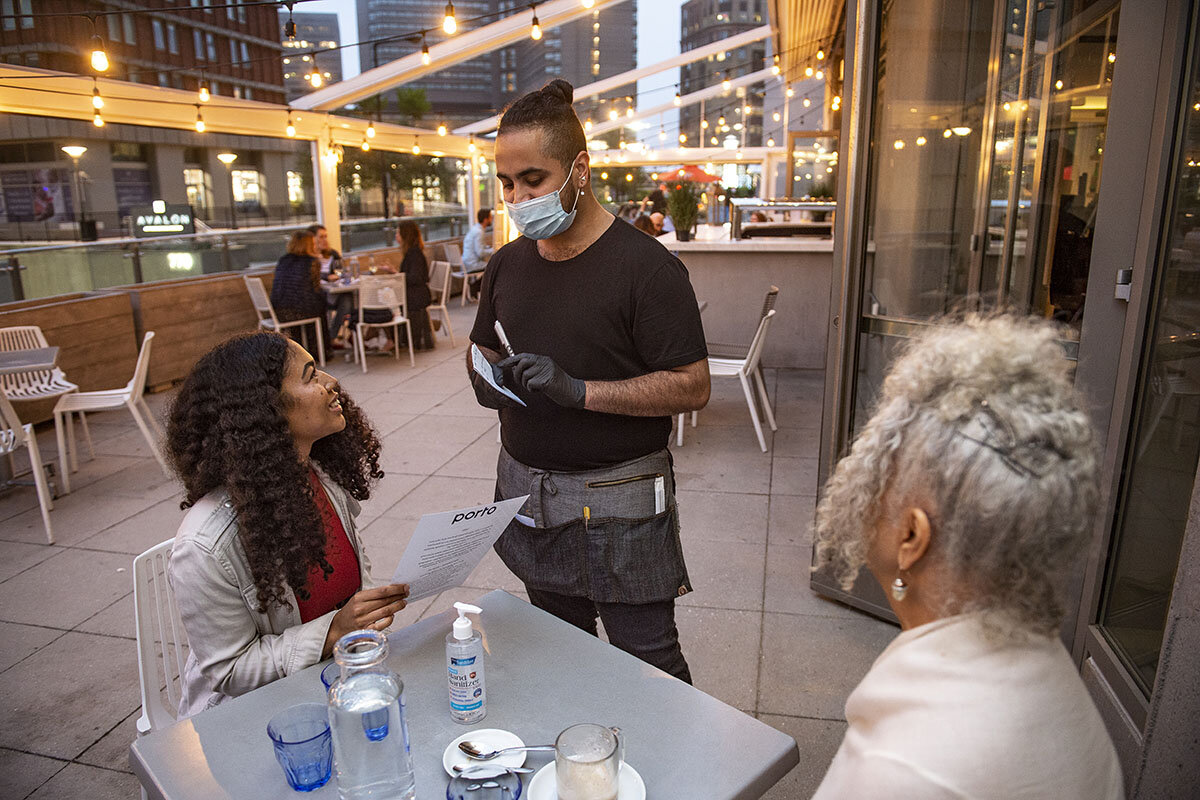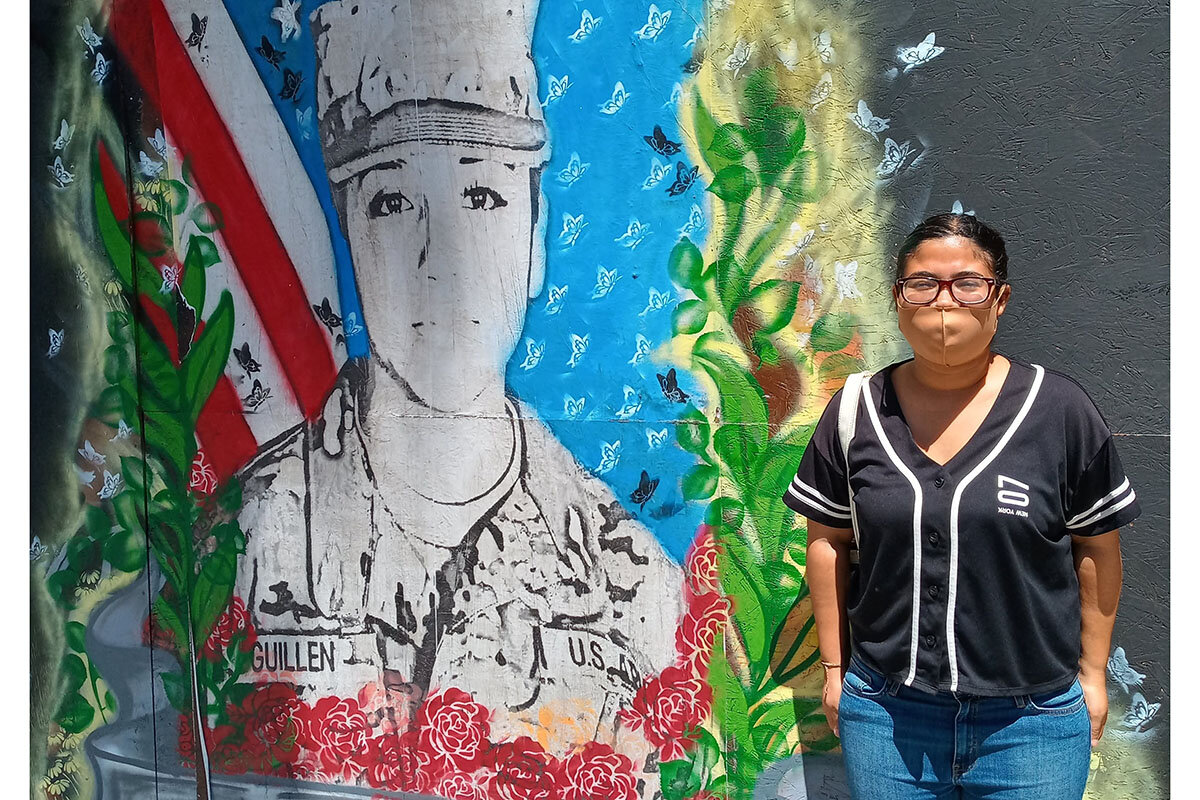For some Americans, the 2020 presidential debates between incumbent Donald Trump and challenger Joe Biden are an audition for two candidates who could become the oldest person to hold the Oval Office. For many others, however, age doesn’t seem to matter.
In August, a poll by The Economist/YouGov found 45% of voters said that an older president brings experience and wisdom to the job. That figure is nearly twice as high as those who said older age diminishes a person’s capacity to meet the demands of the presidency.
Among voters over 45, only 19% said age could be a liability for a president. During the Democratic primaries, younger voters ages 18 to 44 consistently favored Mr. Biden and Sen. Bernie Sanders over candidates closer to their own ages.
After a long campaign that shattered so many political barriers – to ethnicity, gender, and sexual orientation – lifting the prevailing stigma against age is equally significant. A new study by the University of Jyväskylä in Finland found that people between the ages of 75 and 80 today have shown measurably better physical and cognitive performance than people of the same ages 30 years ago. The study is one of only a few to collect and compare data from different historical times. Among its key discoveries is that lifelong learning, higher levels of work complexity, physical activity, and mentally stimulating forms of leisure can sustain cognitive acuity and bodily health.
“The results suggest that our understanding of older age is old-fashioned,” said Taina Rantenan, who led the research. The report concluded that “people can be productively employed much longer in professions that require strong reasoning skills.”
The Jyväskylä study supports previous academic work that found that having a purpose in life is “associated with positive health outcomes in older adults, including fewer chronic conditions, less disability, and reduced mortality,” as a 2018 UnitedHealth Group study concluded.
New insights linking mental and physical health to sustained mental and physical activity may help shift Western ideas about aging and the value of older adults closer to those shared in non-Western societies. Many African and rural Latin American cultures, for example, have no notion of retirement. People remain active well into their advanced years, sometimes out of necessity, while being socially revered. Indeed in much of the world, civic roles expand with age. Nelson Mandela wasn’t just the first Black president of South Africa. He was also the oldest.
“We know that as people age, they actually become wiser,” Dr. Gary Small, professor of psychiatry and biobehavioral sciences at the University of California, Los Angeles, told CNN in a July interview about age and election. “They have more experience to solve problems. They have less anxiety. [As] you get older … you develop mental resilience, which is an important asset of an older person.”
In the U.S. Congress, a blending of the energy of youth and the wisdom of experience is enriching debates with intergenerational insights. In society at large, this blending is nurturing a deeper and wider empathy as Americans grapple with racial injustice.
Rather than judge political candidates by the number of trips around the sun, voters should take measure of their fresh perspectives and accumulated wisdom. Life lessons count more than life spans.
 Mark Sappenfield
Mark Sappenfield









